395: Slow collapse in the west as oil prices stunt growth and inflation takes off
09-17-2011
PropertyInvesting.net team 
This Special Report focusses on an unsustainable western debt mountain, the plundered of resources and how the outcome will be rampant inflation, with a rise in gold, siliver and oil prices, with property also being a reasonable inflation hedge.
Environmental Destruction and Economic Growth: The last fifty years have seen the massive destruction of rainforests, increasing CO2 levels, a tripling of the world’s population and the depletion of much of the worlds fresh water, oil, gas, coal and metals.
Develop World Binge, Boom, Crash: The developed world have got rich on this commodities binge - and resources have often been used very inefficiently. Rainforests have halved in size in fifty years, 1 trillion barrels of oil has been burnt mainly by cars/lorries using technology dating back to the 1920s and ice caps have melted. The internet, increased transparency and public access to what is happening in the world has taught the developing world that there is another world out there - one of wealth and consumer goods. Their aspirations are running high and the booming developed world economies show no signs of slow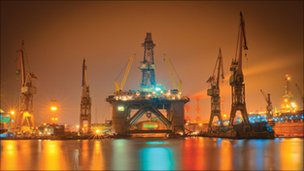 ing. Everywhere from Libya, through Saudi Arabia, India, China to Vietnam are experiencing booming economies as trade increases, manufacturing and infra-structure developments boom and the growing populations get more prosperous. There seems no real way to stop this development and the ecosystems will become more stressed over time. Collapse of biodiversity, fish stocks, fauna and flora continue. The dash for energy means oil sands are mined, arctic areas are explored and deepwater areas are developed in a technological push to try and find lower cost oil to meet this rising demand - a key driver for this demand increase is China, with India, Middle Eastern and other developing nations contributing strongly to this boom in demand.
ing. Everywhere from Libya, through Saudi Arabia, India, China to Vietnam are experiencing booming economies as trade increases, manufacturing and infra-structure developments boom and the growing populations get more prosperous. There seems no real way to stop this development and the ecosystems will become more stressed over time. Collapse of biodiversity, fish stocks, fauna and flora continue. The dash for energy means oil sands are mined, arctic areas are explored and deepwater areas are developed in a technological push to try and find lower cost oil to meet this rising demand - a key driver for this demand increase is China, with India, Middle Eastern and other developing nations contributing strongly to this boom in demand.
Out of Balance: But of course, just like a balanced mathematics equation, something has to give. The dash for commodities and resources to build industry, housing and roads within these nations as prosperity increases has to come from somewhere and at a cost.
British Empire: Up to 1945, Britain had an empire – and this crumbled as the debt burden increased after WWII culminating in an IMF bailed-out in the early 1970s – triggers an oil price shock. Britain came off the gold standard in 1931 in a desperate attempt to get it’s economy moving – gold was transferred to the USA and hoarded by the American government.
US Empire: The USA took over the mantle of empire builder from 1945 to  2008 as construction, consumption, population and wealth all increased off the back of a powerful military, cheap and plentiful indigenous oil and an undeveloped world that could be used to feed the mother-ship - their GDP was 33% of the world by 2000. The boom period stretch from 1945 through to about 1998 as oil price remained very low for most of this period and oil import bills were negligible meaning military spending could be increased to secure resources and global influence.
2008 as construction, consumption, population and wealth all increased off the back of a powerful military, cheap and plentiful indigenous oil and an undeveloped world that could be used to feed the mother-ship - their GDP was 33% of the world by 2000. The boom period stretch from 1945 through to about 1998 as oil price remained very low for most of this period and oil import bills were negligible meaning military spending could be increased to secure resources and global influence.
Soviet Empire Collapse: The cold war race with the Soviet Empire culminated in the US doing a deal with Saudi to flood oil markets in May 1986 that culminated in Soviet oil revenues and oil production crashing (it was not worth pumping the crude to export markets, it cost $14/bbl to pipe the oil of the Soviet Union). The Soviet block broke up three years later after it went bankrupt with depressed $8/bbl oil prices - the "Wall Came Down" in Eastern Europe. Meanwhile the USA boomed from low oil prices as oil import costs dropped amid rising oil consumption and high US oil production up to the early 1970s.
However, the seeds of huge US debts were set in 1971 when Nixon worked the US off the Gold Standard and the Fed was able to print as much money as it wished. Cars grew larger, homes grew larger, consumption grew larger, leverage grew larger, people grew larger. Cracks started appearing for the USA in 2000 after the dot-com bubble burst – in 2001 after 9/11, low interest rates stimulated a massive housing bubble and debt increase that stimulated consumer spending and mirage GDP growth kept the "show on the road", before it collapsed in 2008 after oil prices sky-rocketted to $147/bbl and oil import costs rocketed. The initial private sector debt deleveraging started.
Collapse: The final trigger for the start of a collapse was caused in large part by competition for oil from China as their oil demand sky-rocketted leading up to the China Beijing Olympics mid 2008. World producers were not able to keep up with demand from mid 2007 to July 2008, as China switched to oil fired electric generation to reduce pollution in the lead up to the games. Cheap Chin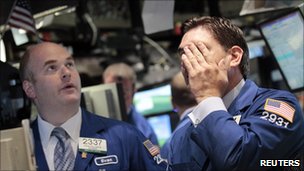 ese imports flooded the USA and their balance of current account deficit skyrocketed. A binge of fiat printed money to the tune of $2.3 Trillion in QE1 and QE2 did not get the US economy moving for the 3 years period up to mid 2011. The USA is still in a state of decline and slow collapse – unable to come to terms with its loss of world status, huge debts and inability to compete with China for resources. The next stage of the US collapse will be when international markets no longer view the US dollar and US as a safe haven - when they finally wake up and bond rates sky-rocket, then the USA will go bankrupt - as the waves of mirage fiat printed money not backed by anything but a worthless promise from politicians causes rampant inflation, interest rates to skyrocket and defaults to occur at individual, private sector and public sector-government levels. It might happen by end 2012 - but it’s almost certain to eventually happen sometime in the next seven years. The train is being kept on the rails only by a bond bubble and huge quantities of fiat printed money – when the bond market bubble pops, interest rates will sky-rocket and mass US bankruptcies will happen. The social project to prop up the “free capitalist markets” will have failed and the real crash will occur.
ese imports flooded the USA and their balance of current account deficit skyrocketed. A binge of fiat printed money to the tune of $2.3 Trillion in QE1 and QE2 did not get the US economy moving for the 3 years period up to mid 2011. The USA is still in a state of decline and slow collapse – unable to come to terms with its loss of world status, huge debts and inability to compete with China for resources. The next stage of the US collapse will be when international markets no longer view the US dollar and US as a safe haven - when they finally wake up and bond rates sky-rocket, then the USA will go bankrupt - as the waves of mirage fiat printed money not backed by anything but a worthless promise from politicians causes rampant inflation, interest rates to skyrocket and defaults to occur at individual, private sector and public sector-government levels. It might happen by end 2012 - but it’s almost certain to eventually happen sometime in the next seven years. The train is being kept on the rails only by a bond bubble and huge quantities of fiat printed money – when the bond market bubble pops, interest rates will sky-rocket and mass US bankruptcies will happen. The social project to prop up the “free capitalist markets” will have failed and the real crash will occur.
European Debt Mountain: Meanwhile the 20 year Euro experiment appears to be drawing to a close. It was only possible during low oil price periods – the goldilocks economy of 1986 to 2003 that corresponded with oil prices languishing between $8/bbl and $20/bbl. Greece prospered as it could afford to be inefficient with its energy usage, as did Spain and Italy. Local currencies were exchang ed for a valuable new Euro backed by Germany and France - and interest rates stayed extremely low. The currency was locked in – and as Germany increased its manufacturing efficiency in the early 1990s after ten years of hardship in merging with eastern Germany, it slowly left Greece and the southern European states way behind with regard to efficiency. One interest rate “one size fits all” clearly did not and could not work as these two economies ran at different efficiencies and speeds. The currency in Germany should now be worth far more than double the Greek currency, but we have the ludicrous situation of paying 5 Euros for a Greek Ouzo on a beach, and the same amount for the Whisky in Berlin Central Business District in Germany. An apartment in Berlin costs 150,000 Euro. Meanwhile an apartment on a remote depopulating Greek Island costs the same.
ed for a valuable new Euro backed by Germany and France - and interest rates stayed extremely low. The currency was locked in – and as Germany increased its manufacturing efficiency in the early 1990s after ten years of hardship in merging with eastern Germany, it slowly left Greece and the southern European states way behind with regard to efficiency. One interest rate “one size fits all” clearly did not and could not work as these two economies ran at different efficiencies and speeds. The currency in Germany should now be worth far more than double the Greek currency, but we have the ludicrous situation of paying 5 Euros for a Greek Ouzo on a beach, and the same amount for the Whisky in Berlin Central Business District in Germany. An apartment in Berlin costs 150,000 Euro. Meanwhile an apartment on a remote depopulating Greek Island costs the same.
Break-Up: Something will give – and very rapidly – as this imbalance snowballs and Greece declares defaults sometime in the next 6-12 months. It’s a fruitless exercise in denial to prop Greece up when oil prices have rise five eight fold since 1999 whilst Greek tax returns have hardly moved.
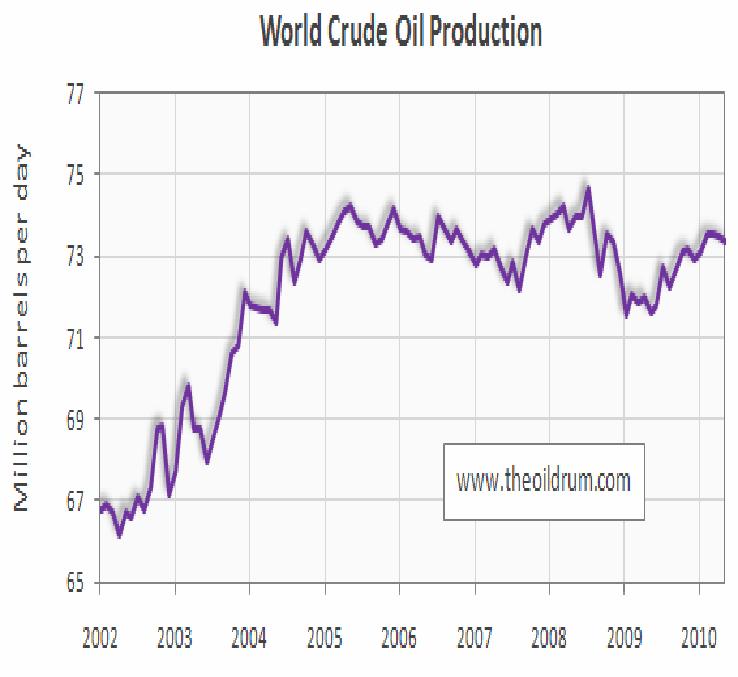
Oil Prices Dictate Growth: In summary, the world economy is being controlled by oil prices. As oil prices rise above $100/bbl, the Western European economies and the USA cannot afford the import bills and their economies slow and start tipping into recession. Their oil demand then drops and oil prices drop back. Governments start printing more money. Then their economies start moving slowly again. There is a very close correlation between GDP growth and oil prices – as GDP increases, oil prices increase until they get too high, then both slip back again within a few month period. As an example, in early 2011, the European and US economies looked like they were moving smartly higher in growth, but of cause oil prices then rose from $90/bbl to $125/bbl as war broke out in Libya – the release of 60 million from the EIA strategic reserves could not prevent the summer economic slowdown, market jitters and more talk of debt contagion and bail-outs. The western economies slowed and are likely now in recession again.
High Oil Prices Stunt Growth: In general, if a country does not actually produce goods and services to pay for these high oil prices, those nations will go into decline when oil prices rise. Hence every time the oil prices rise above $80/bbl, Greece, Italy, Portugal and Spain start to suffer in an amplified manner. They just use too much energy compared with what they produce. There are too many people driving around not creating anything. Not enough manufacturing or services sector output and tax take compared with energy and commodities usage. 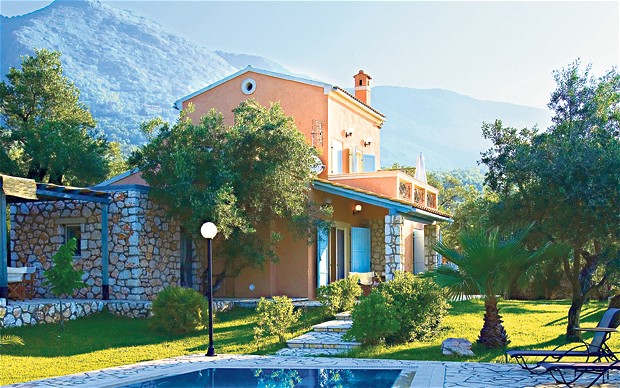
The Long Collapse: The USA and much of Western Europe are therefore in a slow and steady period of decline – simply because China, India and the Middle East now need too much oil and other resources to appease their massively expanding and increasingly wealthy populations all hungry for the energy, consumer goods and cars that Americans and Europeans currently have – who can blame them. Meanwhile much of Europe has a declining population and an aging population – with more old people inactive and not producing – instead taking. This lopsided demographics will accentuate the economic collapse in Greece, and likely Italy, Spain and Portugal.
What Will Be The Politicians and Central Bankers Response? So what’s going to happen during these turbulent times? And how can investors make money from this regrettable situation? Firstly:
1 The USA will start printing money again – operation “Twist” has begun – a back-door money printing game
2 The Europeans will likely follow suit
3 Inflation will increase further
4 Oil prices will rise further
5 Unemployment will rise
6 House prices will be stagnant even though inflation rises
7 Gold and silver prices will sky-rocket
8 US interest rates will skyrocket as the bond bubble pops
9 There will be a US debt default
10 There will be some form of European debt default – at least for Greece, and possibly Italy as well
Politicians and Central Bankers Are One: It's a sorry picture. Western governments are getting far too intertwined with business now. They view capital markets as a social project – they wan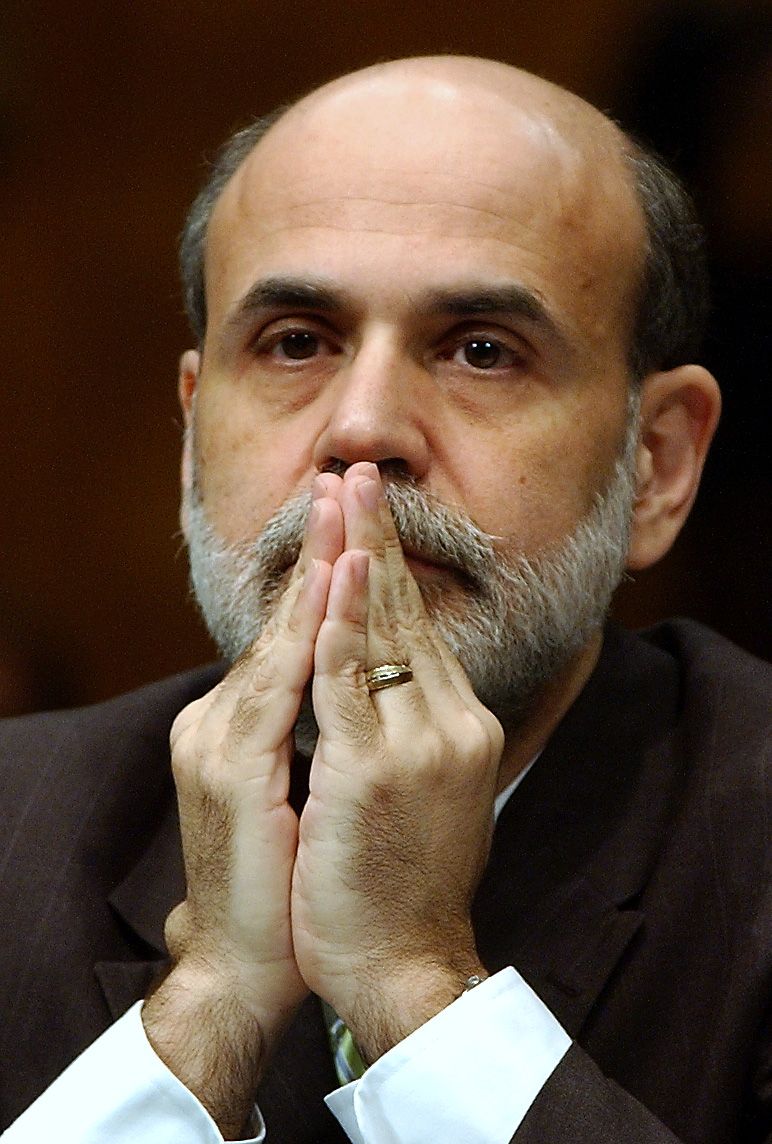 t to interfere, control, regulate and prop up at all cost. If a bank messes up, instead of letting it fold and re-structure, big governments step in, put more regulation in place, demand higher capital requirements, lower returns and make it more difficult for the best banks to prosper whilst subsidizing the poorest run banks. Failed bankers get record bonuses, similar to the best bankers. Let’s face it, most of the higher US political establishment involved with setting economic policy and direction are ex-Goldman Sachs – and they will put in place policies that help their mates cream it for as long as possible, before heading for the hills one day – to secure retirement as they convert their cash bonuses to gold.
t to interfere, control, regulate and prop up at all cost. If a bank messes up, instead of letting it fold and re-structure, big governments step in, put more regulation in place, demand higher capital requirements, lower returns and make it more difficult for the best banks to prosper whilst subsidizing the poorest run banks. Failed bankers get record bonuses, similar to the best bankers. Let’s face it, most of the higher US political establishment involved with setting economic policy and direction are ex-Goldman Sachs – and they will put in place policies that help their mates cream it for as long as possible, before heading for the hills one day – to secure retirement as they convert their cash bonuses to gold.
Denial From All: The western governments are in denial. The average member of the public, with all due respect, frankly does not have a clue what is going on. And the politicians are almost as clueless as the public. Everyone wants to put off the day that a real collapse occurs. But when it does, the pain will be far worse. We are currently muddling through a crisis period – caused in large part by the end of cheap oil and boom in fiat printed money. The strategy seems to be to inflate the debt away, but that's not possible if the debt keeps increasing - as it is - with $100/bbl oil prices. It's only China keeping the US dollar intact that is preventing the whole lot from falling like a p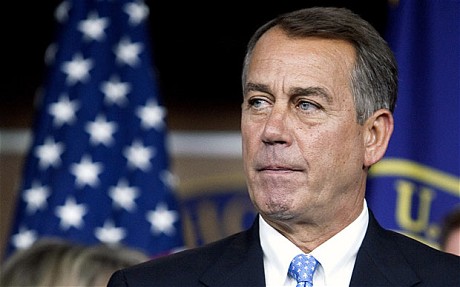 ack of cards. Every time stock markets drop, the dollar increase. But this is because panic margin calls mean investors sell stocks in emerging markets, convert to dollars to then pay their bad debts. It’s no longer a flight to safety. It’s just an aberration – the dollar is used as the currency for most financial transactions. But this could change over time as the US economy and currency starts to fall into disrepute as more money is printed.
ack of cards. Every time stock markets drop, the dollar increase. But this is because panic margin calls mean investors sell stocks in emerging markets, convert to dollars to then pay their bad debts. It’s no longer a flight to safety. It’s just an aberration – the dollar is used as the currency for most financial transactions. But this could change over time as the US economy and currency starts to fall into disrepute as more money is printed.
Deluded and Likely Trying To Help: Is quite possible central banks and governments around the world believe that they are trying to help by printing money. After all, people blames lack of Fed support in the 1930s for the Great Depression as gold was confiscated and printing presses stopped as a massive deleveraging took place with prolong credit crunch as unemployment rose and deflation kicked in. Current government policy is the extreme opposite – selling gold, printing money, propping up failed banks and trying to create worthless jobs. It all points to inflation.
Make Serious Money To Pay The Tax Bills: But rather than getting too em otional about the politics of it all, it’s most productive for investors to focus on how this malaise can lead to opportunities to invest successfully. Don't waste your time watching the news. Instead, act on what is happening - don't just watch it happen. Let’s face it, in the UK the government takes over 80% of your income in tax (yes, 40-50% income tax, 20% VAT, 10% National Insurance, then Council Tax, Petrol tax at 90% - tax on tax on tax). So don’t just sit there and watch your savings get destroyed by inflation at well over 5% - more like 10-15% for most items like energy, tax and transport. It's far better to focus on making serious returns – so at least you will be able to pay your tax bill one day and will have something left when the government has stolen your pension pot. Failure to achieve wealth creation will see you broke by rampant inflation, tax increases and pension pot raids in the next ten years.
otional about the politics of it all, it’s most productive for investors to focus on how this malaise can lead to opportunities to invest successfully. Don't waste your time watching the news. Instead, act on what is happening - don't just watch it happen. Let’s face it, in the UK the government takes over 80% of your income in tax (yes, 40-50% income tax, 20% VAT, 10% National Insurance, then Council Tax, Petrol tax at 90% - tax on tax on tax). So don’t just sit there and watch your savings get destroyed by inflation at well over 5% - more like 10-15% for most items like energy, tax and transport. It's far better to focus on making serious returns – so at least you will be able to pay your tax bill one day and will have something left when the government has stolen your pension pot. Failure to achieve wealth creation will see you broke by rampant inflation, tax increases and pension pot raids in the next ten years.
1970s Style Stagflation: It’s clear this is looking like the 1970s all over again. Increasing debts. Increasing inflation. Strikes. Social unrest. High unemployment. High oil prices. Shortages. House prices in the doldrums. Gold prices sky-rocketting. Bail-outs. Socialist policies and intervention that increase inefficiencies. The general public and politicians in denial - not wanting to face the problems. This time the IMF is unable to bail out any country larger than Greece. The only difference seems to be that trade union strength is diminished.

Outlook Bleak: This is not likely to change any time soon because the major advances in western technology and efficiency happened in the 1990s with the internet and computing. And the UK was also saved from turmoil by massive oil finds that came on stream starting in 1980 – the oil boom years when Sterling was a Petrocurrency.
UK’s Declining Oil – Tax Hike Damage: Now the UK has declining oil production, declining gas production and increasing oil and gas imports. The shock North Sea tax hike in March did irreparable damage – the 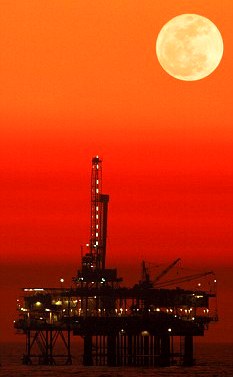 amount of wells being drilled has halved in six months – yes - halved! Manufacturing output was down last month overall (now firmly in recession) only because oil production dropped – if you dig into the numbers. Oil production since the tax hike has crashed from 1.03 mln bbls/day to 0.93 mln bbls/day – 10% in six months. Production since 1999 has crashed from 2.7 mln bbls/day to 0.92 mln bbl/day in August despite oil prices skyrocketing from $9/bbl to $100/bbl. So the UK’s reliance on imports and exposure to high oil prices is massively increasing on an annual basis now the decline has accelerated from a 5% annual production drop before the tax hike to a massive 10-15% projected drop after this tax hike. Within two years, the £2 Billion annual increase in tax take will have evaporated as oil production declines and the £80 Billion tax take crashes. The government has just shot itself well and truly in the foot as development projects are cancelled. Many large oil companies are trying to sell UK oil assets and most are moving exploration overseas to lower tax areas with less mature opportunities and more stable tax regime. The UK has the most unstable oil tax regime in the world.
amount of wells being drilled has halved in six months – yes - halved! Manufacturing output was down last month overall (now firmly in recession) only because oil production dropped – if you dig into the numbers. Oil production since the tax hike has crashed from 1.03 mln bbls/day to 0.93 mln bbls/day – 10% in six months. Production since 1999 has crashed from 2.7 mln bbls/day to 0.92 mln bbl/day in August despite oil prices skyrocketing from $9/bbl to $100/bbl. So the UK’s reliance on imports and exposure to high oil prices is massively increasing on an annual basis now the decline has accelerated from a 5% annual production drop before the tax hike to a massive 10-15% projected drop after this tax hike. Within two years, the £2 Billion annual increase in tax take will have evaporated as oil production declines and the £80 Billion tax take crashes. The government has just shot itself well and truly in the foot as development projects are cancelled. Many large oil companies are trying to sell UK oil assets and most are moving exploration overseas to lower tax areas with less mature opportunities and more stable tax regime. The UK has the most unstable oil tax regime in the world.
Investment Opportunities In This Climate: So how does a UK or US Investor protect their wealth in 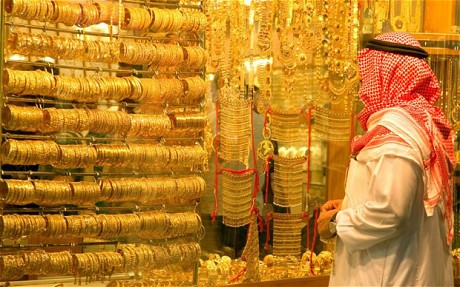 this 1970s type period of stagflation?
this 1970s type period of stagflation?
1 Buy silver coins (a bargain at $35/ounce)
2 Buy gold coins (a bargain at $1650/troy ounce)
3 Buy oil production and oil exploration stocks
4 Buy farmland
5 Buy coking coal mining stock close to China
6 Buy repossessed property in good rental areas with high rental yields and low debt
7 Short the dollar
8 Short the Euro
9 Buy the Norwegian Krona and Australian dollar
10 Buy the Chinese Renminbi
Avoid: Avoid (or short) airlines and consumer-retail in western nations. We would also be very careful about investing in renewable energy in indebt western countries because these businesses will likely crash as subsidies are withdrawn - as these countries cannot afford to switch to renewable sources of energy. As oil and gas prices rise, less money will be available for a switch. If a switch was to have occurred, it should have been when Europe and USA could afford it in the goldilocks period of 1990-2005. So countries like Greece who use gigantic quantities of oil/gas/coal/electricity compared to their GDP output will be stuck with out-dated fuels and inefficiencies – it’s a very sorry tale. Germany however will be able to afford to switch away from expensive oil – and build an infra-structure that can work on more of a mixed hydrocarbon and renewable energy. That said, because of their ban on nuclear energy by 2022, they will need to work extremely hard to achieve low priced energy. It’s likely they will resort to importing more gas from Russia.
Brazil: There is currently a mad scramble for oil. An example is offshore Brazil. In the n ext ten years a gigantic $224 Billion will be spent by one oil company alone – Petrobras – on oil developments in a desperate bid to keep up with oil consumption in Brazil. Brazil still imports oil despite all the hype. Fortunately it also produces about 1 million barrels a day of ethanol – and it is a legal requirement for all cars to run on ethanol or petrol. Now that's a forward plan for you. Of course they have had to destroy a lot of rainforest to achieve this regrettably - making way for sugar cane and ethanol plants. At least they will be more or less self sufficient in oil in the coming years albeit at large environmental cost. With such gigantic investment, growth in Brazil’s population and natural resources, mining and agriculture plus indigenous manufacturing - we expect Brazil to grow steadily by about 5% per annum for the next ten years. Levels of individual borrowing are still very low, so we also expect property prices to rise sharply on a fairly continuous trend upwards in almost all areas in the next 5-10 years. In part because private individual debt will increase as mortgages become more accessible backed by indigenous resources – similar to the Australia property boom from 2004-2011.
ext ten years a gigantic $224 Billion will be spent by one oil company alone – Petrobras – on oil developments in a desperate bid to keep up with oil consumption in Brazil. Brazil still imports oil despite all the hype. Fortunately it also produces about 1 million barrels a day of ethanol – and it is a legal requirement for all cars to run on ethanol or petrol. Now that's a forward plan for you. Of course they have had to destroy a lot of rainforest to achieve this regrettably - making way for sugar cane and ethanol plants. At least they will be more or less self sufficient in oil in the coming years albeit at large environmental cost. With such gigantic investment, growth in Brazil’s population and natural resources, mining and agriculture plus indigenous manufacturing - we expect Brazil to grow steadily by about 5% per annum for the next ten years. Levels of individual borrowing are still very low, so we also expect property prices to rise sharply on a fairly continuous trend upwards in almost all areas in the next 5-10 years. In part because private individual debt will increase as mortgages become more accessible backed by indigenous resources – similar to the Australia property boom from 2004-2011.
Tax Too High? Up It and Leave: Finally, if you get really disillusioned about how high taxes are in the West and how low growth is, then you can always up-sticks and move to Thailand, Singapore or Hong Kong. You’ll find tax rates far lower, growth opportunities far better and lovely people in a dynamic environment. For a steady  quiet life, Switzerland is another option or Monaco. You can follow billionaires like Dr Marc Faber (Thailand) and Jim Rogers (Singapore). They spotted the opportunities in the Far East years ago – and are close to the new action out there. Not for many people admittedly with family and friends in Europe and the USA, but certainly worth considering – especially for younger people starting out. The Western Governments know it’s tough for people to re-locate and that’s why they think they can get away with 80% tax on income, but ultimately the super rich who are most mobile will just up it and go overseas. This has been happening for a number of years, and for UK citizens it’s easier than for US citizens, because you will not be taxed on your worldwide income once you are resident abroad.
quiet life, Switzerland is another option or Monaco. You can follow billionaires like Dr Marc Faber (Thailand) and Jim Rogers (Singapore). They spotted the opportunities in the Far East years ago – and are close to the new action out there. Not for many people admittedly with family and friends in Europe and the USA, but certainly worth considering – especially for younger people starting out. The Western Governments know it’s tough for people to re-locate and that’s why they think they can get away with 80% tax on income, but ultimately the super rich who are most mobile will just up it and go overseas. This has been happening for a number of years, and for UK citizens it’s easier than for US citizens, because you will not be taxed on your worldwide income once you are resident abroad.
Silver: In our simple view of the world at this time – silver seems to be the screaming bargain at $31/ounce – in the next few months our action plan is to switch into silver and gold – more on this rational a little later. Gold also looks good value at $1600/ounce.
Summary: So, expect the printing presses to start up again shortly, then stocks and oil will rally – then the whole lot will crash some time possibly end 2012 just after the US elections or sometime thereafter after inflation sky-rockets from the giant quantities of new printed money back by nothing but a shaky promise.
Insights: We hope this Newsletter has given you some insights into what will happen in the next 5-10 years. It will be a slow steady process of western collapse and debt default regrettably. The day of reckoning will be put off for a while longer. But ultimately, it will be far worse when it finally arrives. So make sure you have some gold, silver and oil! And protect your wealth from inflation.
All for free as normal. If you have any comments, please contact us on enquiries@propertyinvesting.net If not, that’s also great of course and we hope this helps your investing strategies.

